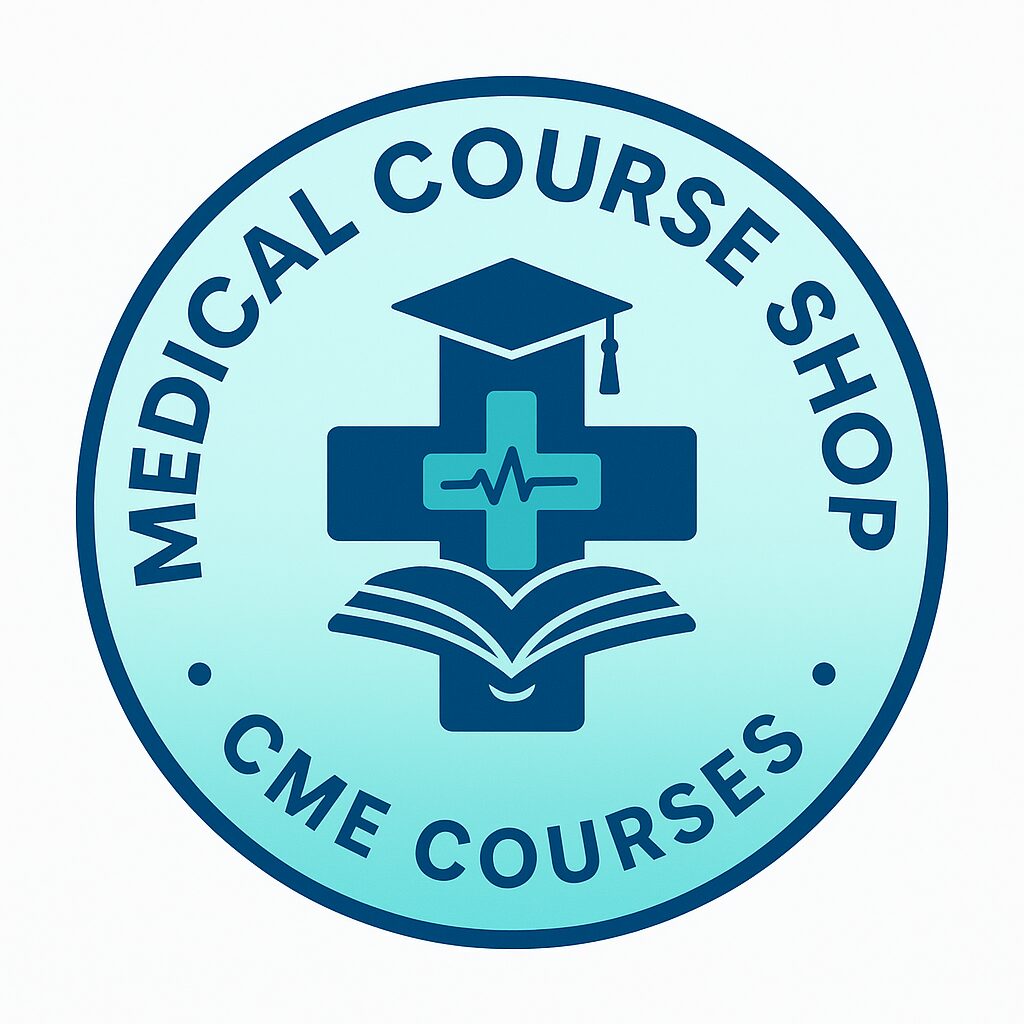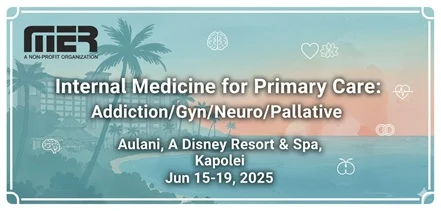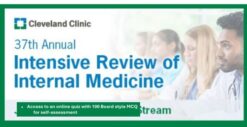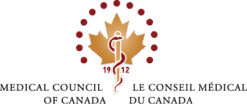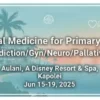-
×
 Harvard Diabetes and Obesity: Caring for the Whole Patient” 2025
1 × $62
Harvard Diabetes and Obesity: Caring for the Whole Patient” 2025
1 × $62 -
×
 American Medical Seminars Can’t Afford to Miss High Acuity Emergency Medicine 2025
1 × $128
American Medical Seminars Can’t Afford to Miss High Acuity Emergency Medicine 2025
1 × $128 -
×
 SRU Annual Meeting: Connecting Minds • Advancing Ultrasound 2025 – A CME Teaching Activity
1 × $57
SRU Annual Meeting: Connecting Minds • Advancing Ultrasound 2025 – A CME Teaching Activity
1 × $57 -
×
 CME Seminars Primary Care Family Medicine and Sports Medicine 2025
1 × $84
CME Seminars Primary Care Family Medicine and Sports Medicine 2025
1 × $84 -
×
 2025 ASTRO Annual Refresher Course onDemand
1 × $88
2025 ASTRO Annual Refresher Course onDemand
1 × $88 -
×
 QMP Facial and Nasal Support and Soft Tissue Aesthetic Harmony With Double Jaw Orthognathic, Genioplasty, and Rhinoplasty 2025
1 × $31
QMP Facial and Nasal Support and Soft Tissue Aesthetic Harmony With Double Jaw Orthognathic, Genioplasty, and Rhinoplasty 2025
1 × $31
Medical Education Resources Internal Medicine for Primary Care Addiction Gynecology Neurology Palliative 2025
$150
Encrypted checkout
Card payments protected
Drive download link
Private Google Drive access
Publisher-sourced files
Exact content as released
Responsive support
Help with access & files
Medical Education Resources Internal Medicine for Primary Care Addiction Gynecology Neurology Palliative 2025
Include: 5 videos 5 vtt sub 25 pdfs, size: GB
INTERNAL MEDICINE FOR PRIMARY CARE: ADDICTION/GYNECOLOGY/NEUROLOGY/PALLIATIVE
Oahu, HI – Aulani, A Disney Resort & Spa
Medical Education Resources 2025: Internal Medicine for Primary Care is a comprehensive, hybrid training series tailored to equip clinicians with cross-disciplinary mastery in four critical areas: Addiction Medicine, Gynecology, Neurology, and Palliative Care. This flexible blend of live interactive sessions and recorded content is designed for hands-on relevance and seamless integration into busy clinical practices.
What You Will Learn
-
Addiction Medicine: Practical strategies for screening, diagnosis, treatment approaches, and managing co-occurring mental health conditions in substance use disorders.
-
Gynecology for Primary Care: Effective care strategies for common women’s health concerns—such as menstrual disorders, menopause, contraception, and screenings—within the primary care setting.
-
Neurology: Updated guidance on neurologic evaluations, essential diagnostics, and management of common conditions such as headache disorders, neuropathy, seizure disorders, and stroke.
-
Palliative Care: Foundational principles of symptom control, advanced care planning, interdisciplinary communication, and supportive care for chronically and critically ill patients.
Event Details
-
Format: Mixed-mode delivery combining live virtual sessions with a library of recorded materials for on-demand review.
- Date: June 15 – 19, 2025
-
Structure: Organized into four focused tracks, each with case discussions, clinical pearls, and practical takeaways relevant to primary care topical needs.
-
Flexibility: Access to session recordings for extended post-conference learning and clinical reference.
Who Should Attend
Primary care physicians, nurse practitioners, physician assistants, internists, and advanced practice providers seeking high-yield updates and expanded competency across addiction, women’s health, neurology, and palliative care.
Why Attend
This dynamic program offers an exceptional opportunity to enhance clinical breadth and confidence across crucial areas of internal medicine. Tailored to busy providers, it delivers relevant practical guidance, up-to-date clinical strategies, and flexible learning—empowering you to elevate patient care across multiple domains.
Topics:
| Time | Session Title | Topic | Description |
| Sunday, June 15, 2025 | |||
| 2:30 pm | Registration | ||
| 3:00 pm – 4:00 pm | The Neurological Exam | Neurology | Characteristics and objectives of the examination; exam phases; assessing general mental status; long-term predications; examination of infants; demonstration on conducting an exam. |
| 4:00 pm – 5:00 pm | Evaluating Weakness | Neurology | Using the history and physical examination to distinguish weakness from non-specific symptoms; characteristics of neurological diseases that produce weakness; presentations of representative diseases of the nervous system. |
| 5:00 pm – 6:00 pm | Headaches & Migraines | Neurology | Basic headache mechanisms; headache history: characteristics, precipitating factors, medical conditions; migraine: common tension, classic, treatment, complicated, cluster, sinus; trigeminal neuralgia; Giant Cell Arteritis; brain tumor; subarachnoid hemorrhage; emergency room treatment. |
| 6:00 pm | Session Adjourns | ||
| Monday, June 16, 2025 | |||
| 7:00 am | Registration and Hot Breakfast | ||
| 7:30 am – 8:30 am | Medicare Hospice Benefit | Palliative | Which patients are eligible? What is palliative care? What does the Medicare benefit provide for patients and families? |
| 8:30 am – 9:30 am | Symptom Management | Palliative | Symptom management; Symptom management of dyspnea and cough, pain, nausea and vomiting, constipation, and agitation, at the end of life. |
| 9:30 am – 9:40 am | Coffee Break | ||
| 9:40 am – 10:40 am | Prognostication for the PCP | Palliative | Estimating life expectancy for patients with life-limiting illnesses such as CHF, Alzheimer’s dementia, Parkinson’s disease, end stage renal disease. |
| 10:40 am – 11:40 am | Alzheimer’s & Other Dementias | Neurology | Definition; statistics; neurological changes of normal aging; pathology; etiological theories; vascular dementias; investigations; social issues; symptomatic treatment; research therapies. |
| 11:40 am – 12:40 pm | Parkinson’s Disease & Other Movement Disorders | Neurology | Epidemiology; cardinal features; secondary features; pathology; neurochemistry; differential diagnosis; treatment; complication; other movement disorders; neuroleptic- induced movement disorders; chorea. |
| 12:40 pm | Session Adjourns | ||
| Tuesday, June 17, 2025 | |||
| 7:00 am | Registration and Hot Breakfast | ||
| 7:30 am – 8:30 am | Addiction 101 | Addiction | This module will introduce the disease model of addiction, its neurobiology, and some of the toolseasily used in the primary care setting to identify who is at risk for addiction. |
| 8:30 am – 9:30 am | Chronic Pain and Addiction | Addiction | Epidemiology of pain; risk factors and comorbidity; pain management concepts; patient factors affecting the analgesic response; the relationship between stress and chronic pain; the range of therapeutic options for management including non-pharmacologic approaches. |
| 9:30 am – 9:40 am | Coffee Break | ||
| 9:40 am – 10:40 am | Opioid Use Disorder | Addiction | Update on the opioid crisis; Risk for opioid misuse and addiction; FDA approved medication for treating overdose; FDA approved medication-assisted treatment (MAT) for managing opioid addiction. |
| 10:40 am – 11:40 am | Addressing Goals of Care | Palliative | Definition of POA, DNR, DNI, DNH, MOLST, POLST; Techniques on how to address goals of care, both in acute crisis as well as when the patient has chronic issues. |
| 11:40 am – 12:40 pm | Pain Management in the Palliative Care Patient | Palliative | Treatment of pain with both nonopioid and opioid medications; New guidelines related to opioid prescribing; Side effects management. |
| 12:40 pm | Session Adjourns | ||
| Wednesday, June 18, 2025 | |||
| 7:00 am | Registration and Continental Breakfast | ||
| 7:30 am – 8:30 am | Abnormal Uterine Bleeding | Gynecology | Overview of normal/abnormal menstrual physiology/profile; Menstrual disturbances; Ovulatory and anovulatory uterine bleeding; Other menstrual abnormalities; Diagnosis and appropriate treatment options. |
| 8:30 am – 9:30 am | Menopause Transition and Hormone Replacement Therapy | Gynecology | Symptoms of menopause, including hot flashes, night sweats, and atrophy; Menopause syndromes, including osteoporosis, breast cancer, cardiac disease, and colon cancer; Estrogen analogs; Counseling patients in options and alternatives to hormone therapy; Designer estrogens; SERMs; HRTs; Discussion of risks and benefits, especially in breast cancer and CHD. |
| 9:30 am – 9:40 am | Coffee Break | ||
| 9:40 am – 10:40 am | Cervical Cancer Screening Including HPV Management | Gynecology | Current recommendations for cervical cancer screening; incorporating the ASCCP consensus guidelines for management of cytologic cervical abnormalities (including ASCUS, LGSIL, HGSIL and atypical glandular cells) into practice; Algorithm for the appropriate use of HPV testing and managing results; Determining appropriate candidates for the use of the HPV vaccine. |
| 10:40 am – 11:40 am | Alcohol & Benzodiazepines | Addiction | The scope of alcohol related problems and the societal burden of Alcohol Use Disorder; Overview of FDA-approved and more common off-label pharmacotherapies for Alcohol Use Disorder. |
| 11:40 am – 12:40 pm | Gaming, Gambling & Social Media | Addiction | Behavioral addictions to gaming, gambling and social media are poorly understood and thus underdiagnosed and under-treated. They are chronic brain disorders with specific risk factors and require appropriate screening, diagnosis and evidence-based treatment. |
| 12:40 pm | Session Adjourns | ||
| Thursday, June 19, 2025 | |||
| 7:00 am | Registration and Continental Breakfast | ||
| 7:30 am – 8:30 am | Annual Exam for Women | Gynecology | Best practices in offering annual pelvic examinations in asymptomatic non-pregnant women; Determination of who should be offered a clinical breast exam as a routine part of the annual women’s health exam; The principal elements of the annual women’s health visit: screening, vaccinations, evaluation of health risks and needs, counseling; Evidence-based tools to guide components of the annual women’s health visit based on age and health needs. |
| 8:30 am – 9:30 am | Fertility Awareness and Management | Gynecology | Comprehensive review and strategies to apply the physiologic knowledge of the menstrual cycle to clinical situations; Analysis of information about peak fertility times; Comparison and contrast of modern methods of fertility awareness and contraception. |
| 9:30 am | Conference Adjourns |
Tags: Addiction Medicine CME, Addiction Medicine for Primary Care, Alcohol Use Disorder CME, Alzheimer’s CME, Alzheimer’s disease CME, Annual Exam for Women CME, Aulani Disney CME, Behavioral addiction CME, Behavioral Addictions CME, Benzodiazepine Addiction CME, Benzodiazepine use CME, Case-based CME, Case-Based Learning CME, Cervical Cancer Screening CME, Chronic Pain CME, Chronic pain management CME, Clinical Pearls Internal Medicine, Clinical Strategies Internal Medicine, Clinical updates internal medicine, CME for advanced care planning, CME for Advanced Practice Providers, CME for Ambulatory Care, CME for Busy Clinicians, CME for chronic disease management, CME for Clinical Competency, CME for Clinical Practice, CME for clinical reference, CME for Clinical Updates, CME for Community Physicians, CME for cross-disciplinary care, CME for Evidence-Based Practice, CME for family medicine, CME for family physicians, CME for General Practitioners, CME for Healthcare Providers, CME for Hospitalists, CME for interdisciplinary communication, CME for internists, CME for Medical Professionals, CME for Medical Updates, CME for multidisciplinary teams, CME for nurse practitioners, CME for Outpatient Providers, CME for Patient Care, CME for patient-centered care, CME for physician assistants, CME for Physician Education, CME for Practice Improvement, CME for primary care physicians, CME for supportive care, CME PDFs Internal Medicine, CME Subtitles Internal Medicine, CME Videos Internal Medicine, CME with PDFs and videos, CME with subtitles, Cross-Disciplinary CME, dementia CME, Evidence-Based Primary Care, Fertility Awareness CME, Gambling addiction CME, Gaming addiction CME, Gynecology CME, Gynecology for Primary Care, Headache and migraine CME, Headache CME, Hospice and palliative care CME, Hospice CME, HPV management CME, Hybrid CME Conference, Internal Medicine CME 2025, Internal Medicine Conference 2025, Internal Medicine for Primary Care, Internal Medicine for Primary Care Addiction Gynecology Neurology Palliative 2025, Live CME sessions, Medical Conference Hawaii 2025, Medical Education Resources, Medical Education Resources 2025, Medical Education Resources Internal Medicine, Menopause CME, Migraine CME, Movement Disorders CME, Multidisciplinary CME, Neurology CME, Neurology for Primary Care, Oahu CME Conference, On-Demand CME, Opioid Use Disorder CME, Pain Management CME, Palliative Care CME, Palliative Care for Primary Care, Parkinson’s Disease CME, Primary care clinical pearls, Primary Care CME, Primary Care Updates 2025, Prognostication CME, Social media addiction CME, Substance use disorder CME, Symptom Management CME, Women’s Health CME
